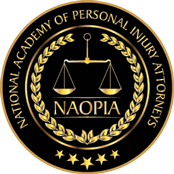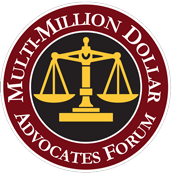When it comes to premise liability claims, it is important to understand why you should care. Knowing your rights and liabilities as a property owner or tenant can help you avoid costly mistakes and potential legal issues.
Premise liability claims are responsible for hundreds of thousands of successful lawsuits annually in the United States alone. Knowing the basic elements of premises liability and the rights of injured parties is an invaluable tool to protect yourself. If you ever find yourself dealing with a claim, you'll be better prepared and able to navigate it more confidently and assuredly.
Negligence on your part as a property owner or tenant without knowing the law can prove very costly. Being aware of local laws, regulations, and statutes can help you avoid making mistakes that could be very expensive in the long run, such as failing to properly secure outdoor lighting or forgetting to put up "no trespassing" signs.
What Is the Difference Between Premises Liability and Personal Liability?
You may wonder what the difference is between premises and personal liability. In a nutshell, premises liability occurs when someone is injured while on another person's property due to their negligence, while personal liability occurs when someone is injured due to the negligence of another person.
For example, if you are walking in a store and an employee has not properly mopped up a spill, you could trip and fall and suffer an injury. This would be considered premises liability because it occurred on the store's property. On the other hand, if you are walking down the street and someone driving a car hits you, this would be considered a personal liability as another person's negligence caused it.
In both cases, you would likely have grounds for legal action—you need to determine who is responsible to pursue compensation for your damages. In Florida, specific laws based on premises liability can help guide your case.
What Evidence Do I Need to File a Premises Liability Claim in Florida?
Knowing what evidence to provide in your premises liability claim is essential for getting the most successful outcome for your case. Generally, you'll need to provide the following:
- Evidence of what caused the accident. This could be a photo or video, a witness statement, a police report, and/or an inspection report.
- Medical documentation: all medical records related to your injury and treatment.
- Documents related to lost wages, out-of-pocket expenses, and other financial losses that resulted from your injury.
- Expert testimony: An expert can provide testimony on how the property owner was negligent in not correcting a hazard that caused the injury.
- Your account of what happened.
It's important to note that you might need to collect all these forms of evidence quickly after an accident — so keep this in mind and be prepared.
Who Can I Sue for A Premises Liability Sexual Assault Case?
Who can you sue when it comes to premises liability sexual assault cases? It depends on the situation.
First, you'll need to determine who owns or is responsible for the premises where the sexual assault took place. Depending on the circumstances, it may be a business owner, property manager, or government agency.
Once you've identified who owns or is responsible for the premises in question, you can then determine if they were negligent or failed to provide adequate security to prevent the sexual assault from taking place in the first place. Negligence will be key in cases like these; if someone was directly at fault for not providing ample security, you may have a case against them.
Negligent Security Claims
If you believe that your sexual assault was due to negligent security measures, then you'll need to prove that:
- The owner of the premises was aware of (or should have been aware of) potential risks that could lead to a sexual assault on their property.
- The premises owner failed to take proper safety precautions to deter and prevent such assaults from occurring on their property.
- Your injury occurred as a result of this lack of security measures.
These claims will involve complex questions and investigation into many factors, such as criminal history and behavior of third parties known by both parties before an incident occurred. You will likely need help from an experienced attorney to protect your rights and best interests when seeking justice in these cases.
How Does Premises Liability Law Affect Sexual Assault Cases in Florida?
It's important to understand how premises liability law affects sexual assault cases in Florida. There are a few aspects of this law that you should know. First, you should be aware that the victim must prove that the owner or occupant of a property was negligent in providing a safe environment. The victim is responsible for showing that the property owner should have taken reasonable precautions to prevent such activity.
Second, if the victim can prove that the property owner failed to do something they should have done, they may be liable for damages related to the attack. This includes medical bills, lost income, pain, suffering, and other damages suffered by the victim as a result of their trauma.
Third, if an injury or incident occurs due to defective property conditions or inadequate security measures, then premises liability may apply. For example, inadequate security measures such as poor lighting or lack of cameras may make someone liable for injuries on their property. Likewise, someone may be held responsible for a sexual assault if they failed to properly lock doors or windows on their property.
How Long Do I Have to File a Premises Liability Sexual Assault Lawsuit?
So, you've been the victim of sexual assault on someone else's property—what do you do next? Florida laws require you to file your case promptly, so you understand it's important to act quickly.
Fortunately, Florida law generally allows injured people two years from the date of injury to file a sexual assault premises liability lawsuit. However, there are a few factors that can extend or shorten this timeframe:
- If the defendant is a government entity (such as a County or State agency), then you typically have only three months from the date of injury to file your claim.
- If an adult has legally adopted or given permission to another adult to assume legal responsibility for them or their property (this is called an "applicable period"), then the applicable period can extend up to seven years.
- An adult may have only one year to bring their claim after the applicable period expires. However, this one-year window can be extended if they weren't aware of the negligent party's identity until after the applicable period expired.
What Damages Can I Receive for A Premises Liability Claim in Florida?
You can receive various damages for a premises liability claim in Florida. The severity of your injuries will determine the type of damages you can receive, the amount of negligence involved, and whether punitive damages are warranted.
Compensatory Damages
Compensatory damages are designed to cover expenses related to medical bills, lost wages, pain and suffering, and other losses. Compensatory damages may also compensate a person for loss of life enjoyment or physical impairment caused by an injury due to the negligence of another party.
Punitive Damages
Punitive damages can be awarded if it is determined that the defendant acted maliciously or with extreme disregard for safety when causing your injury. Such damages are intended to punish the defendant and deter them from committing similar acts in the future.
Non-Economic Damages
Non-economic damages can include compensation for physical pain suffered due to an injury and emotional distress caused by an accident. Types of non-economic damage awards may include attorney's fees, loss of consortium related to marital relations, or loss of parental guidance for children who have lost a parent due to someone else's negligence.
How Can a Lawyer Help Me with My Premises Liability Case?
If you're considering making a premises liability claim in Florida, it's important to understand how a lawyer can help you. A lawyer will work alongside you to ensure your rights are protected and your case is handled properly. Here's a list of how an experienced attorney can assist with your case:
- Evaluating the evidence - Your lawyer will review all the evidence related to your case, including any medical documents related to the injury. They will also look at photos or videos indicating the accident or injury site.
- Obtaining testimony - Your lawyer will work to obtain any relevant testimonies from witnesses of the accident and any medical testimony related to the injury.
- Negotiating with insurance companies - An experienced lawyer can negotiate on your behalf with insurance companies and other parties involved to get you a fair settlement for your injury.
- Representing you in court - If necessary, a lawyer can also represent you in court when filing a lawsuit against another party for negligence or premises liability claims in Florida.
- Advising on settlement options - Finally, a knowledgeable attorney will provide counsel on settlement options and advise on whether or not to pursue legal action against an individual or business who is negligent and has caused an injury to occur on their property or premise in Florida
Will My Premises Liability Case Be Settled Out of Court?
With premises liability cases in Florida, it's important to understand that you aren't guaranteed a settlement. Your case may be settled out of court, but it could also go to trial. There is no way to know for certain until the facts of your case are fully evaluated.
If your premises liability case can be resolved through an agreed-upon settlement outside of court, this may help you avoid the stress and cost of a lengthy court battle. Of course, any settlement must be something you are comfortable with and adequately compensate you for your losses.
Working With Your Attorney
Your attorney can advise you on whether going to trial is the right move for your premises liability case. They can guide how likely successful litigation would be and help you decide if an out-of-court settlement would be wiser financially.
Your lawyer will also consider how long the legal process could take and advise whether it is in your best interest to wait or accept an earlier offer. A lawyer will ensure that any agreement stipulates all of your damages, medical expenses, and legal fees are taken care of in accordance with state law.
Can I Sue Someone If I Hurt Myself on Their Private Property in Florida?
Yes, you can sue someone liable for your injuries if you hurt yourself on their private property in Florida. This is known as a premises liability claim. The property owner owes the public a duty to take reasonable steps to protect people from hazardous conditions on their land. If they fail to do this, they can be held responsible for any resulting harm caused by their negligence.
There are two main situations in which you may be able to make a premises liability claim in Florida:
- The property owner knew about or should have known about the hazardous condition and failed to correct it.
- The hazard was created by the property owner or someone with legal control over the property.
If either of these applies and an injury is caused. As a result, the injured person may be able to hold the property owner responsible through a premises liability claim. To prove your case, you must show that it was reasonable for the property owner to have known about and corrected the hazard before your injury occurred.
When Can I Expect to Get Paid from My Premises Liability Claim in Florida?
You're almost done with your Florida premises liability claim, and you can see the light at the end of the tunnel. The only thing left to figure out is when you can expect to get paid for your claim.
The timeline for receiving a settlement for a Florida premise liability claim depends on several factors, but there are several general guidelines you should keep in mind:
- Legal proceedings: Depending on how complicated the legal proceedings got, you may have to wait months or even years before receiving a settlement. Sometimes, settlements can be given out in as little as two weeks.
- Insurance companies: Many want to avoid paying out money and may take their time considering your case. Be prepared to wait up to 12 weeks or longer if they drag their feet.
- Negotiations: Even after a claim is filed and accepted, there might still be negotiations between the parties involved before a settlement is reached. If these negotiations fail, your case may be sent back to court, so make sure you are prepared for this possibility and familiarize yourself with speeding up negotiations if necessary.
Ultimately, it is important to remember that no matter what timeline you expect from your Florida premises liability claim, you must remain patient; good things come to those who wait!
What Safety Standards Do Property Owners Have to Have in Place in Florida?
If you have a premises liability case in Florida, you need to understand what safety standards property owners must have in place. While the specifics vary from state to state, property owners have certain obligations to ensure that their premises are kept safe for visitors and tenants.
In Florida, property owners generally must adhere to the following safety standards:
- Keep common areas clean and free from debris or other hazards.
- Maintain stairways and handrails.
- Ensure walkways meet all applicable building codes.
- Keep any recreational or amusement equipment in good condition.
- Post warning signs if a hazard is not obvious.
- Make sure all electrical wiring is up to code and secure.
- Provide adequate lighting in common areas or hallways.
- Inspect and repair damaged surfaces or cracked pavement that pose a tripping hazard.
What Are the Common Causes of Accidents on A Property?
If you have been injured on someone else's property, you may be able to file a premise liability lawsuit in Florida. Before doing so, there are a few key elements to be aware of. First, you should understand the most common causes of accidents on a property to determine whether or not liability is applicable.
Generally speaking, premise liabilities arise when an owner's negligence leads to an injury. This can occur when a hazardous condition on the premises, such as unattended water puddles, broken stairs or banisters, or an unmarked hazardous area causes the accident.
Property owners must also take appropriate steps to secure trespassers from harm if they enter the premises, such as installing barriers or fences around certain areas. Additionally, if a property has known security risks, the owner must take reasonable steps to prevent and address those risks.
Contact Frankl Kominsky Injury Lawyers, Premises Liability Lawyers Serving Jupiter
If you are looking for a premises liability lawyer servicing Jupiter, consider Frankl Kominsky Injury Lawyers. Our team offers aggressive representation to injured people throughout the state of Florida. With years of experience in premises liability law, we can guide you through the often complicated and daunting process of filing a claim.
At Frankl Kominsky Injury Lawyers, we understand that details matter regarding premise liability claims. Our team works hard to review every aspect of your case from start to finish, ensuring that nothing is overlooked and your rights are always protected.
Whether you've been injured at a private residence or a business, our lawyers have the knowledge and resources necessary to provide personalized solutions for your situation. Contact us today at (561) 800-8000 for a no-obligation consultation.






